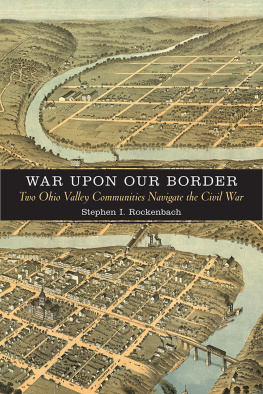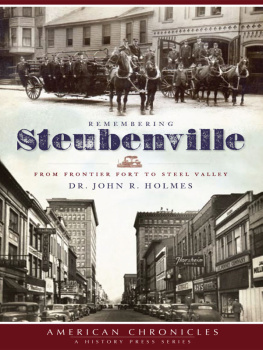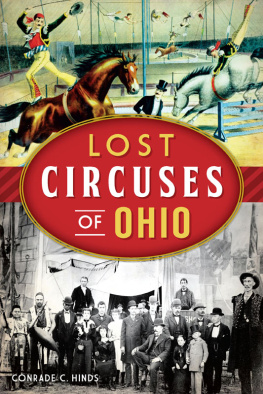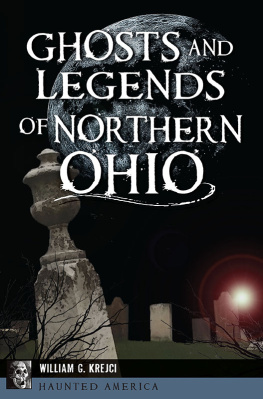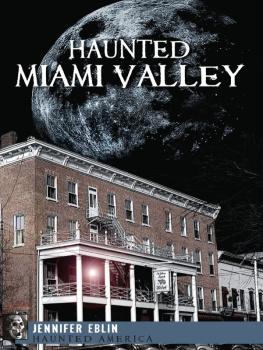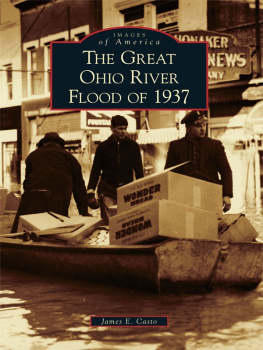A NATION DIVIDED: STUDIES IN THE CIVIL WAR ERA
ORVILLE VERNON BURTON AND ELIZABETH R. VARON, Editors
WAR UPON OUR BORDER

Two Ohio Valley Communities Navigate the Civil War
STEPHEN I. ROCKENBACH
UNIVERSITY OF VIRGINIA PRESS
Charlottesville & London
University of Virginia Press
2016 by the Rector and Visitors of the University of Virginia
All rights reserved
Printed in the United States of America on acid-free paper
First published 2016
1 3 5 7 9 8 6 4 2
LIBRARY OF CONGRESS CATALOGING-IN-PUBLICATION DATA
Names: Rockenbach, Stephen I., 1971 author.
Title: War upon our border : two Ohio Valley communities navigate the Civil War / Stephen I. Rockenbach.
Description: Charlottesville : University of Virginia Press, 2016. | Series: A nation divided: studies in the Civil War era | Includes bibliographical references and index.
Identifiers: LCCN 2016015395| ISBN 9780813939186 (cloth : alk. paper) | ISBN 9780813939193 (e-book)
Subjects: LCSH: Corydon (Ind.)History19th century. | Frankfort (Ky.)History19th century. | Ohio River ValleyHistoryCivil War, 18611865. | Corydon (Ind.)Social conditions19th century. | Frankfort (Ky.)Social conditions19th century. | United StatesHistoryCivil War, 18611865Social aspects.
Classification: LCC F534.C8 R63 2016 | DDC 973.7/1dc23 LC record available at https://lccn.loc.gov/2016015395
COVER ART: Frankfort, the Capital of Kentucky, Albert Ruger, published by Ehrgott & Krebs, lith., 1871. (Library of Congress, Geography and Maps Division, G3954.F7A3 1871 .R8)
ACKNOWLEDGMENTS
As with any scholarly work, this book has benefited from the attention, support, and effort of a number of people and institutions. I have enjoyed the advantage of both wise council and supportive advice from more people than I can mention in the course of a few pages. The research that culminated in this book has been a labor of love, and I am grateful for all of those who saw some element of promise or merit in this project and contributed their own time and talents to help me bring it to fruition.
I started my research into the Civil War in the Ohio Valley as a graduate student at the University of Cincinnati. What began as my own interest in the history of the region where I grew up soon became a research project in need of shape and guidance. I am extremely grateful to Christopher Phillips for encouraging me to hone my analysis and interpretation of the wartime experience of valley residents. I distinctly remember sitting in his office and announcing my dissertation topic, a history of the wars impact on the Ohio Valley. Chris replied that this was an excellent subject, but one impossible to complete in two years of research and writing. His wise council resulted in my selection of two communities, which I am very grateful to have studied: Corydon, Indiana, and Frankfort, Kentucky. As I sought to revise my dissertation for publication upon completion of my doctorate, I gained a greater appreciation for the wisdom of his suggestion.
The path from completed dissertation to book manuscript has been both arduous and joyful, and I am thankful for those who accompanied me along the way. Wayne Durrill and Linda Przybyszewski had a significant influence on my journey as a junior historian, including offering valuable suggestions that shaped this work. J. Michael Rhyne and William H. Bergmann have also read and offered valuable comments on this work and have inspired me through their own excellent scholarship. Additionally, several anonymous reviewers and editors have offered essential critiques that greatly improved this work. Portions of chapters 35, 7, and 8 were published in the autumn 2013 issue of the Register of the Kentucky Historical Society as part of The Weeds and the Flowers Are Closely Mixed. Additionally, parts of chapters 6 and 9, pertaining to Morgans Raid claims in Indiana, appeared in the IndianaMagazine of History in March 2013 as This Just Hope of Ultimate Payment. Aaron Sheehan-Dean, then the series editor for the University of Virginia Press, read the manuscript and offered valuable comments through several revisions. I am especially indebted to the anonymous readers who challenged me to extend the borders of my previous research and craft a much stronger argument overall. Dick Holway and Anna Kariel facilitated the submission and review process and provided much-needed guidance.
In the course of researching these two communities, the staff of numerous organizations have helped me find valuable sources and tell these important stories. I am especially grateful to Lynn Hollingsworth and Douglass Boyd for helping me find sources at the Kentucky Historical Society during the early stages of this project. My research was also aided by a fellowship from the Filson Historical Society and the encouragement and aid of Mark Wetherington, James Holmberg, and Michael Veach. Brandon Slone guided me through the extensive Old War Records at the Kentucky Military History Museum and provided valuable background information on these sources. Employees at the Indiana State Library, Indiana State Archives, Indiana Historical Society, Cincinnati Historical Society, University of Kentucky Archives, and National Archives and Records Administration helped me locate and duplicate the sources I needed to relate the wartime experience of Ohio Valley residents. Finally, the extensive research that began this project was facilitated by a dissertation fellowship from the Charles Phelps Taft Research Center at the University of Cincinnati.
Finally, the collegiality, friendship, and love of so many others has allowed me not only to pursue this project to completion but also to realize both my academic and personal goals. The understanding and encouragement of many among the staff, students, and faculty at Virginia State University have helped bring this and other projects to completion. Specifically, Christopher Caldwell, Richard Chew, Renee Hill, Majid Amini, Arthur Abraham, and Robert Roby have helped spur this project forward in various ways whether they realize it or not. I am also lucky to have family and friends who have been supportive of my endeavors and ready to provide much needed diversions from the rigors of academia. My parents, Ira and Marjorie Rockenbach, long ago encouraged me to pursue a career that brought happiness and fulfillment, and I am fortunate to have had the support that allowed me to pursue my passion for history. My mother-in-law, Harriette Weatherbee, has always been ready to discuss Civil War scholarship with me and has opened her home for countless research trips. By far the most essential person to the pursuance of my love of history and this topic in particular is my wife, Tre. She has read, edited, and improved everything I have ever written professionally. More importantly, her own fascination with the past and adventuresome spirit have inspired me to dig deeper and constantly expand my own knowledge. It would be an understatement to say that this book would not be possible without her. However, in spite of the many people who have helped shape this scholarship, any errors or omissions remain my own.

Introduction
At its root the Civil War was a conflict fought among members of the same society, truly making it civil in the impact the war had on communities, families, and individuals. Nowhere was the war more complex and divisive than on the border between North and South. The Ohio River Valley was such a border and served as a physical, economic, and ideological middle ground between freedom and slavery. The war impacted the people in this region in a unique way, one that transformed the region while at the same time challenging longheld assumptions about what it meant to be a citizen in a border community. Corydon, Indiana, and Frankfort, Kentucky, were only two of the many communities that the war affected. The tension, loss, and turmoil of civil war left deep impressions on civilians, arguably changing their very understanding of themselves. These two border communities experienced dramatic changes, in part because the war shattered westerners sense of regional identity and completely upset the racial and economic status quo in their locales, but in larger part as a result of border residents often desperate attempts to endure the hardships and consequences of the Civil War. Both outcomes suggest the formative and destructive force of war itself.
Next page
